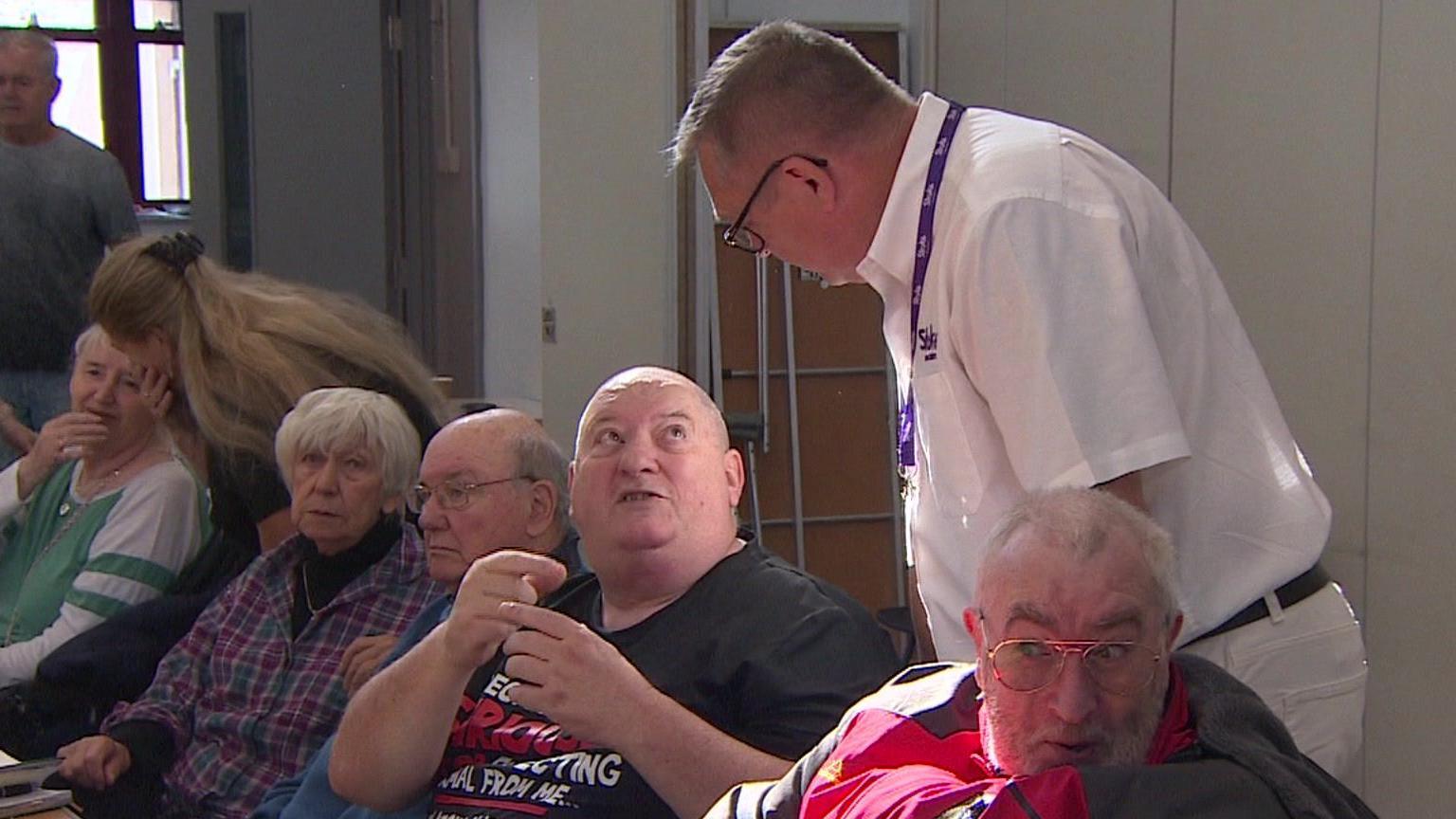Funding fears over aftercare for stroke survivors

Stroke survivor Bob Perrin says it would be "absolutely devastating" if the Stroke Association cannot find extra funding
- Published
There are concerns stroke survivors across Devon and Cornwall will not be able to access the support they need due to a lack of funding for aftercare.
The Stroke Association (SA), which runs Life After Stroke Services in the region, is worried about a long-term plan to keep its work going.
The association says, unlike elsewhere in the UK where it gets some money from the NHS, in Devon and Cornwall it relies on private donors and its own charitable funds, which it says is not sustainable.
Bob Perrin, 71, from Torquay, who has had three strokes, said if the SA could not find extra funding it would be "absolutely devastating" for all the stroke survivors in the South West.
The SA in Cornwall said it estimated more than 1,000 people had a stroke each year, external and about14,000 people in the county weare living with the after-effects of a stroke.
In Devon, those figures jump to more than 2,500 having a stroke each year, with about 32,000 people living with the after-effects, external.
It makes the Devon one of the highest areas in the UK for stroke prevalence, the SA said.
Up until December 2024, the Devon Stroke Recovery Service, which was run by the SA, had funding from the NHS to run its services providing help with rehabilitation for stroke survivors and support for families - but this ended.
In Cornwall, stroke aftercare is funded through a donor, but this income stream is due to run out in March 2026.
'In the balance'
Jacqui Cuthbert, the Stroke Association's associate director for the South West and Channel Islands, said they had managed to keep services going for the past year using the charity's own funds.
However, she said its future "hangs in the balance".
She said: "It's a real worry for us. For Devon and Cornwall, we do have concerns over what the future holds for life-after-stroke services."
Bob Perrin had his first two strokes in 2021 and a third in 2024.
He said after his first strokes he "found life incredibly difficult" but, after his third, he accepted help from the Stroke Association which "had been a great help".
His wife Lesley Perrin, 65, said: "It is literally a life-saver to have that support... I cannot believe there isn't NHS funding for this."
'Focus on clinical care'
The NHS Cornwall and Isles of Scilly Integrated Care Board said it funded a community neuro-rehabilitation group which supported people to develop skills, strength and confidence to manage their condition independently, and reduce their need for wider health and care services.
In a statement, NHS Devon said it valued the work of the after-care groups but its remit was to "focus on clinical care" and to "ensure resources are directed towards clinical services that enable faster diagnosis and treatment".
A Department of Health and Social Care spokesperson said: "It is unacceptable that so many stroke survivors are not receiving the support they need with their recovery.
"We're committed to improving stroke prevention, treatment and recovery for all stroke survivors, including by setting new national standards for how cardiovascular disease care should be delivered across the NHS.
"Through our 10 Year Health Plan, we are shifting the focus of healthcare out of the hospital and into the community, to help stroke survivors get vital support sooner."
Follow BBC Devon on X, external, Facebook, external and Instagram, external. Send your story ideas to spotlight@bbc.co.uk, external.
- Published17 October 2024

- Published3 August 2023
